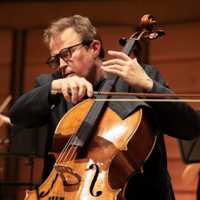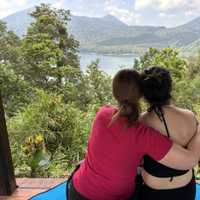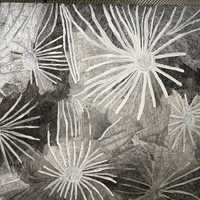Approx. 6 minute read
The song Shout Sister Shout was performed by Sister Rosetta Tharpe and the Lucky Millinder Orchestra. Their recording captures a sense of energy and zest that is so fresh, even though it was recorded back in the 1940s! I love the sense of play between the orchestra and Sister Rosetta.
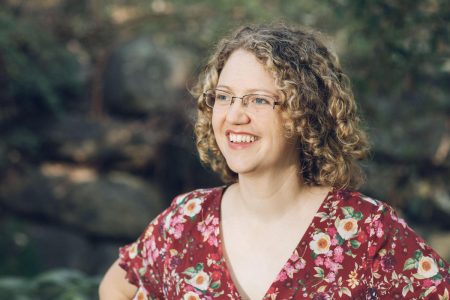
This same sense of buzz, groove and vibrancy are values that constitute the foundation of the Divergence Jazz Orchestra’s approach to their art. They are led by the saxophonist and composer, Jenna Cave and, lucky me, I had the chance to pick her brain.
Sonia de Freitas: Hi Jenna, how are you and where does our interview find you today?
Jenna Cave: Hi Sonia, I’m well thanks! I’m currently sitting at home, have had a quiet morning relaxing and doing some preparation for an upcoming gig with my group, Divergence Jazz Orchestra(DJO). I will soon start teaching some private sax and clarinet students for the afternoon.
SdF: Can you tell me about your journey in music? When did you know that you were going to make music your career?
JC: The first instrument I had lessons on was violin, age 8; I did not enjoy it and only lasted 1 year. The following year at school my class got to learn recorder and I absolutely loved it! I’d toot a lot around the house, I’d work tunes out by ear and I remember making up songs with my best friend. After this I really wanted to learn saxophone, and I was finally able to start at age 11. When I was in grade 8, I joined the high school jazz band. Here I learnt the basics of ensemble playing but most importantly fell in love with jazz and improvisation. My music teacher was classically trained but was really passionate about jazz education and took our very modest-sounding year 8-10 jazz band to perform at the Wangarratta Jazz Festival in year 9 and 10. This was a game changer for me to hear all the amazing artists at the festival and it was then I decided I wanted to pursue music as a career in some form.
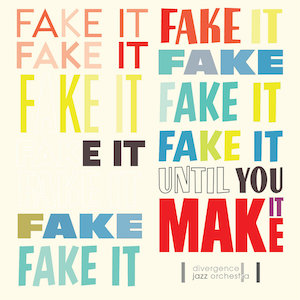
SdF: Your album Fake It Until You Make It with the Divergence Jazz Orchestra is one of my favourites. I love how it captures a sense of humour in tracks like Mrs Party Pants; it’s such a joy to listen to! Can you tell me about your creative process when composing and arranging music for the DJO? Is there anything particular you do that is special to your creative process?
JC: Thanks, I’m glad you enjoy the album. For me to be creative I need time and space and to be well rested. So, I try to make sure I have some pockets of time during the week at home to rest and recuperate (from being the mum of a toddler) and/or to get into some composing! I’m not sure if my creative process is particularly unique, I compose at my piano and add Sibelius on my laptop next to the piano as I start getting into orchestrating. There are so many parts to play. I sing as I compose, sometimes I’ll lie on my bed and close my eyes and let ideas play themselves out in my head, or go for walks as the ideas churn around.
SdF: Who is your sounding board? There must be someone that you trust to give you brutally honest feedback on your music. How do they fit into the process?
JC: Usually my own band Divergence! Sometimes, I’ll show my co-bandleader Paul Weber works in progress or drafts before I bring a chart in, and he’s excellent at being brutally honest! But the best test is the band. When the music is played in rehearsal I can rely on my ears to tell me what works compositionally or not, as it’s so different to having it on a page/in your head/hearing it in midi. I’ll consult with my band members about writing for their particular instruments and whether they think things are working or how I could change something to achieve certain sounds. They are great at giving feedback and making any suggestions if something doesn’t quite sit.
SdF: Have you experienced particular challenges as a female musician? How did you overcome these challenges and what do you think needs to change for others to avoid these challenges in the future?
JC: I think it was hardest when I was younger. In late high school and early university, my jazz musician peers were mostly male and there was a definite macho/misogynist culture among the peer group. This had a major effect on my confidence in myself and as a musician. I’m not sure how I overcame it, I was just very determined to keep going with music, so I did. Eventually, I managed to find more sensitive and like-minded people to make music with.
Apart from the society-wide problems with sexism at play here, supporting more young women to get into jazz seems to help. It would have been very different if there were more women studying jazz at university with me and to jam with. Initiatives like the Sydney International Women’s Jazz Festival are amazing for showing young women what they can be. When I got into jazz composing later in university, there were really visible female role models (Maria Schneider, Carla Bley) who were at the top level. That was good for my confidence to see.
SdF: So, what’s on the horizon for you? Any projects you’re working on or new releases to share? Include links if appropriate.
JC: I would love to record a new album with Divergence in the next year or two! I aim to capture the current band line-up (it’s changed a lot) with some of the original material we’ve developed since the last album. It would be nice to write one or two more pieces before we do that though! My most recently recorded work is Sleep, In my Arms which was commissioned and recorded by the amazing Paul Cutlan and his String Project on their new album Living.
SdF: Musicians come in many “flavours”; vocalists, trumpeters, bassists, drummers…; if you weren’t a conductor and composer, what flavour musician would you want to be and why?
JC: Well, I’m an alto sax player, which is a big part of who I am as musician, and I’ve dabbled in singing and more recently I’ve been working on clarinet. But if I couldn’t be a composer and could start again as a youngster, I’d love to play piano really well. I think that’s the closest thing to being a large ensemble composer/arranger. I do play piano a bit, but mostly just chords and melody – I can’t do intricate parts.
SdF: What advice would you give to any aspiring musicians out there?
JC: If you feel an internal need to make music, just keep going. Don’t worry about the naysayers. On that note though, it is wise to not except your art to support you financially, but that doesn’t mean you can’t pursue it seriously.
To learn more about Jenna Cave and the Divergence Jazz Orchestra visit: www.jennacave.com and www.divergencejazzorchestra.com
To buy the Divergence Jazz Orchestra’s music visit: divergencejazzorchestra.bandcamp.com/album/fake-it-until-you-make-it
For more information on International Women’s Day visit: internationalwomensday.com
Keep an eye out for my next interview in the Shout Sister Shout series where I interview Keyna Wilkins.
Did you miss the previous Shout Sister Shout instalment? Read Mara Kiek’s Interview here.
Share "Shout Sister Shout: Jenna Cave (IWD 2021)"
Copy

